Words And Images | Peter Chaffin
There are some amazing employment opportunities out there at the moment with well trained and qualified arborists in high demand.
At Training For Trees we are proud to be educating the latest and potentially the greatest up and coming stars of our industry, who will be dedicated to providing a high class service to all things ‘arboricultural’. There are some amazing employment opportunities out there at the moment with well trained and qualified arborists in high demand.
At TFT for the start of 2019 we are excited to have seen our first Diploma of arboriculture class reach graduation. After committing to the program our students have worked tirelessly for the past 14 months to become our first Diploma of Arboriculture graduates who all achieved their qualification through regular face-to-face training, with in-class and major workplace assignments that were completed.
These graduates are able to appraise and identify with trees and have the ability to use sophisticated diagnostic tools to support their judgements along with stateof- the-art mapping and software systems which complement the training provided. This enables them to prescribe quality arboricultural diagnostic evaluations and treatment programs as well as to be able to audit tree work and specify trees for replanting. Hats off, guys! Well done to you all.
Most importantly, our Diploma graduates have learned to really appreciate and evaluate trees. I can’t begin to describe how excited and proud I am of the class of 2017/18 and for them to be out there, able to recommend ways of working with trees, rather than just opting for the easy way of “Just fell it, they grow fast here!!” This should help to promote high quality tree care and preserve trees rather than just removing them.
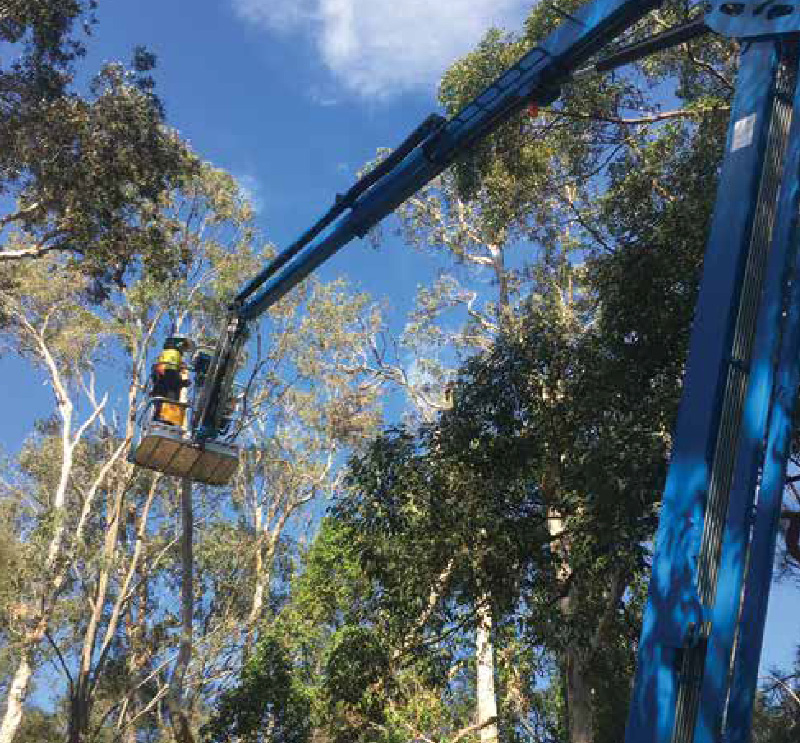
We are also so very proud that, through high quality education and training and working within the national training package, we are seeing extremely high standards of arboricultural prognosis and tree care. Any tree, particularly if it is lucky enough to be under the supervision of a TFT qualified arborist, will be a very happy tree indeed. The arboricultural rumour mill is working overtime at the moment and some of you that qualified a few years ago are being told that your present, hard-earned qualifications are no longer valid! This is not true.
As far as any qualifications that you already hold, please rest assured they will never be worthless. No one will be able to take them away from you and they will always show that you are qualified at whatever level they depict and they will never expire. However, you should always strive to keep your qualifications current and update them periodically. This can be achieved by documenting your professional development, attending workshops, seminars, conferences etc… or by upgrading to any new qualifications as they are created, usually on a basis of every five to ten years.
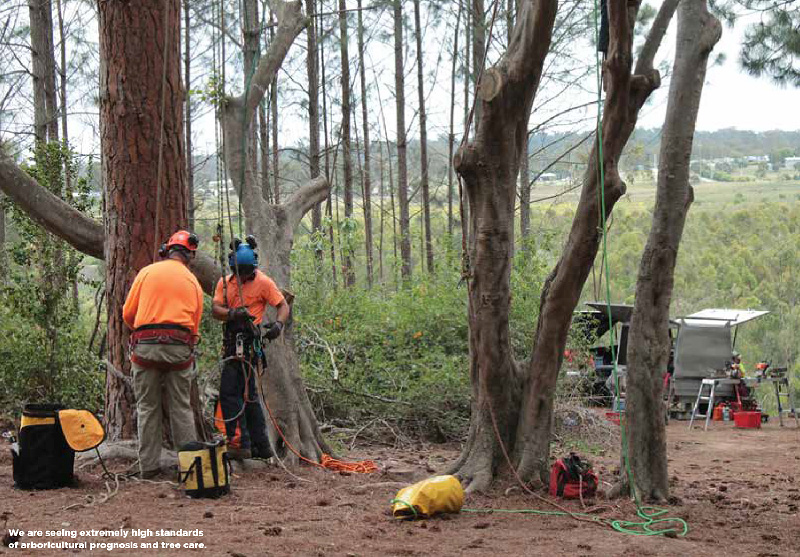
Usually this process will just involve the addition of a few new units of competency which, if you are currently working as an arborist, should not really present too many problems for you to achieve and the process will also serve to assist you to maintain your currency and status within the industry.
We as trainers have to upgrade our trainer assessor qualifications on a very regular basis as well as stay current within the industry so, if anyone needs any advice regarding their qualifications, please feel free to call us at TFT. If, for example, you wish to become recognised under an industry scheme for licencing recognition and validation of your qualified status, then you will usually be expected to follow the organisations entry requirements and if they specify their requirements for particular qualification levels and particular categories of recognition, then you will need to upgrade as required.
Have your say
It has been said by some in our industry that there is a need to make the arboricultural qualifications easier to attain and deliver as the journey to achieve qualifications in arboriculture requires high standards from the student and the training organisation. You may have seen recently that the arboricultural training packages are undergoing another review which, unlike the usual process of an industry training package running for at least a five year period, this review is being undertaken within two years of the current training package being endorsed by industry and released.
“The arboricultural rumour mill is working overtime at the moment and some of you that qualified a few years ago are being told that your present, hard-earned qualifications are no longer valid! This is not true.”
This is an industry review and request for industry comments and validation has been made by our industry Skills Service Organisation, so if you feel that standards need to be raised or that things need to change, then you need to register and send in your comments to our industry Skills Service Organisation (SSO).
Our industry organisation is called Skills Impact and they have initiated and are managing this major review. Please, visit their website look up arboriculture and register your interest and make sure to have your say. This is really important because, if this review is not done correctly this time around, there will probably not be any options to change things for a very long time!
The arboricultural industry used to be considered as just an offshoot of forestry or horticulture and just a job you did if you got poor grades at school and could lift heavy things use spikes like a pro and wanted to look like a champion body builder.The arboricultural industry is a fantastic profession that generally seems able to provide a source of income even in difficult economic times.
Over the past ten years or so there has been a lot of industry involvement regarding standards of training packages and the constant need for updating them to meet the ever changing requirements of industry. Training packages and individual units of competency are the only way to meet industry requirements and to achieve the required qualifications is the way to be considered as competent and qualified in your trade.
“The arboricultural industry is a fantastic profession that generally seems able to provide a source of income even in difficult economic times.”
To be able to work in the arboricultural industry general requirements are that you need to be qualified to at least as – but not limited to – WHS experts, social media gurus, diplomats, relationship counselors, businessmen accountants and sales experts and there is probably a whole lot more too! The completion of the AHC30816 Certificate III in Arboriculture is currently accepted as the minimum industry standard requirement to be able to be considered as trade level qualified working arborist.
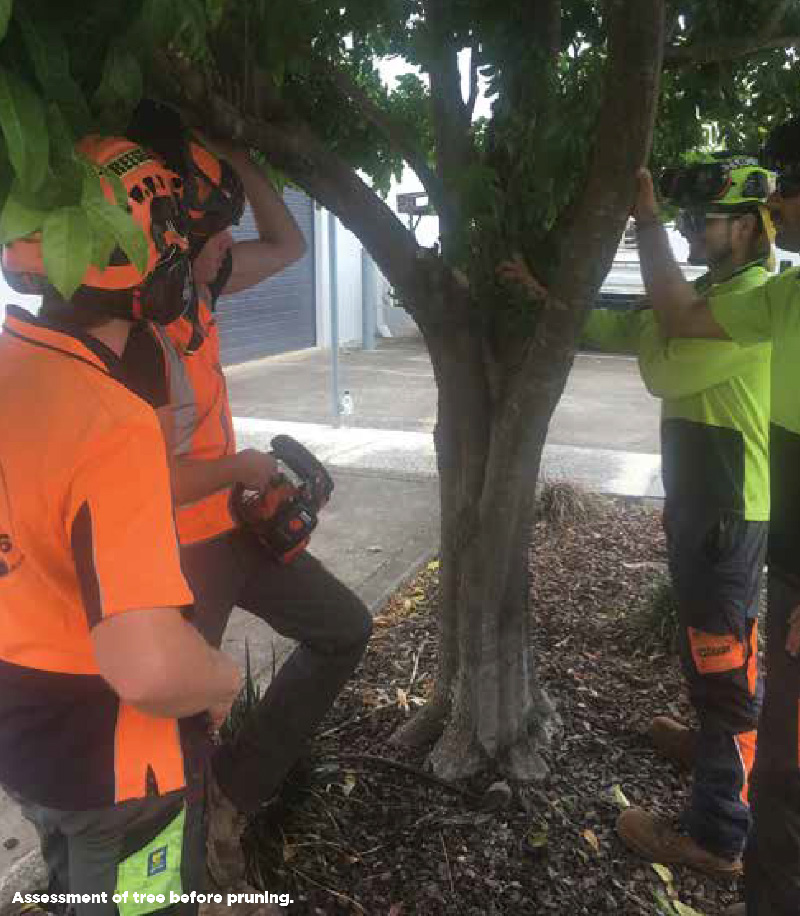
The pathway to achieve this qualification involves the completion of 23 industry endorsed units of competency that have been engineered, approved and nationally mandated by industry working groups and government funded skills organisations. Once you have achieved the Cert III, the next step if you wish to continue to progress within our industry is to follow the pathway from trade level working arborist and step up to undertake the AHC50516 Diploma of Arboriculture.
To achieve this qualification you will need to have a considerable working tree knowledge and complete training and assessment in 10 industry endorsed units of competency that have been engineered, approved and nationally mandated by industry working groups and government funded skills organisations, to ensure that achieving this qualification will enable the graduate to operate with the required skills for consulting arborists in the arboricultural industry.
At TFT we believe the message is finally getting through regarding the importance of training and qualification and the benefits that it can bring to everyone including the trees.
The favourite question the office gets at the moment is:
“What do I need to do to become an arborist?”
Our advice regarding entering into the arboricultural profession is to enrol in the course that best suits your needs, then commit to invest as much time learning the processes and procedures of the job as possible, ask lots of questions and make an effort to learn some tree names. Make an effort to take ownership of your learning both at work and in your own time. Even when you are dragging branches to the chipper you could be learning about trees.
How do they smell? How heavy is the wood? Do you get splinters in your hands? What colour is the timber? Are there flowers or fruits? Why is the heartwood soft or hollow? What is in the pruning standard AS4373?
At TFT we believe that the latest arboricultural qualifications offer a challenging process both in their delivery and in the journey required to achieve their required outcomes, but the outcomes far outweigh the challenges and are producing well rounded graduates that are well trained and able to offer a high level of skill back to their respective employers in the workplace. A tried and tested process we at TFT have been suggesting for several years now is proving to be so true regarding the almost everyday question we get from employers which is…
“How do I get a new groundie climber or consulting arborist to join my operation.”
Well, new workers don’t grow on trees unfortunately, but if you want to have reliable professional staff you have to be prepared to invest in them and train them up, which is a process that requires a level of investment both financially and in time and effort requiring, amongst other things, large amounts of support, tolerance, patience, understanding etc… etc…! One of the best sources for new staff often comes from within your company when a current employee is encouraged and supported to step up to the plate and develop new skills while to some extent learning on the job and earning their keep at the same time.
“New workers don’t grow on trees unfortunately, but if you want to have reliable professional staff you have to be prepared to invest in them and train them.”
When this process is coupled with the journey through the Cert III or the Diploma qualification and the employer works with the training organisation, the outcome is a well-rounded competent and qualified staff member that is a real asset to your business. Ensure you maintain currency of your own existing qualifications as well as for employees. For example, can you demonstrate evidence of your professional development or of recent staff training or updating recently carried out within your company?
- Do you have a safety policy that includes safe work method statements, risk assessment and machinery checklists?
- Are all qualifications certificates and licences up to date?
As the new recruits progress through their training and apprenticeship process they will almost immediately begin to repay your investment in their future by becoming more useful and able to operate more efficiently within your company. By the time they graduate, they will probably go on to become your next head climber crew leader or manager and could also be helping to train the next apprentice to keep your company evolving.
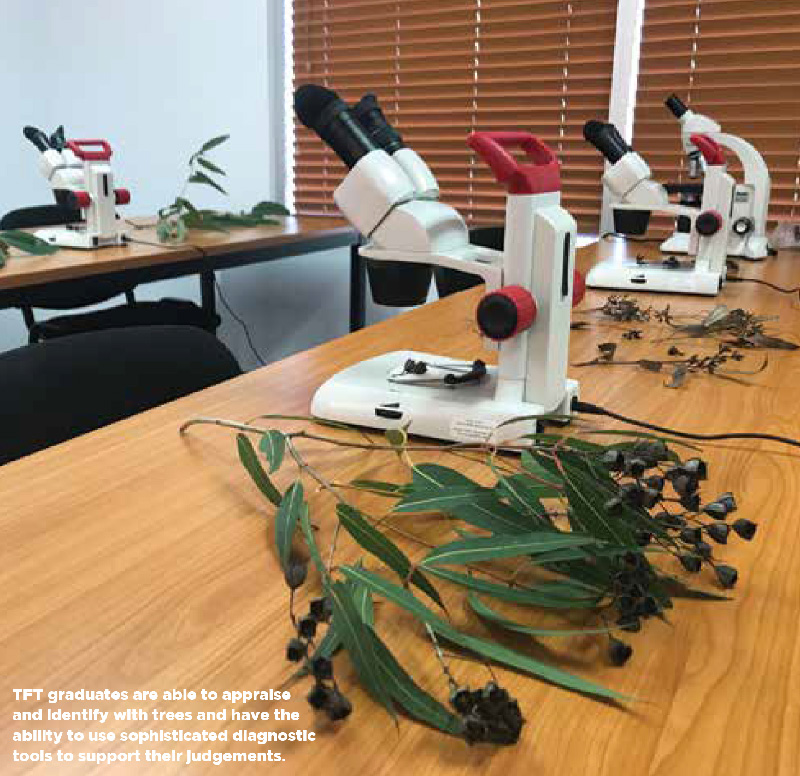
If your apprentice decides to leave and move on, once they are qualified, then at least you will have had some return on your investment, while they were employed with you, and if you get the balance right, then there will always be upcoming apprentices that will keep the cycle flowing giving you access to staff that already know your business and systems, that will continue to provide a return on the investment you have made in them.
Consider your strategy for training and how you can keep your existing qualifications up to date. “Everyone engaged in carrying out work with trees must be trained and qualified in their designated task and strive to maintain and improve their industry currency by continuing to gain relevant experience and qualifications”. Training is as important as the servicing of vehicles and machinery.
After all, workers are the machinery that you run and need to maintain to enable the smooth operation of your business. It has been proven that independent training and assessment increases staff retention, safety awareness, productivity and efficiency. Remember to schedule in regular refresher and update training sessions. To be classified as an arborist you need to complete the qualification AHC30816 Cert III in Arboriculture or AHC50516 Diploma of Arboriculture.
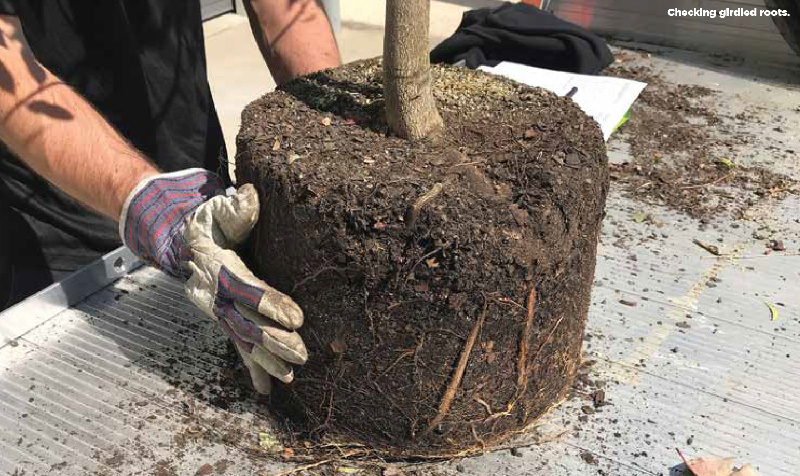
Safety Rules
Check out your eligibility for funding. Enrol now for the new intake Certificate III in Arboriculture and Diploma. Now booking Chainsaw courses running regularly (all levels), EWP Licence, First Aid, Working at heights, Chipper, Stump grinder, Polesaw and AC/DC. Contact us for your Qualifications, short courses VOC, RPL and refresher training. Train with us and leaf qualified. See our website www.trainingfortrees.com.au for details or email info@trainingfortrees.com.


